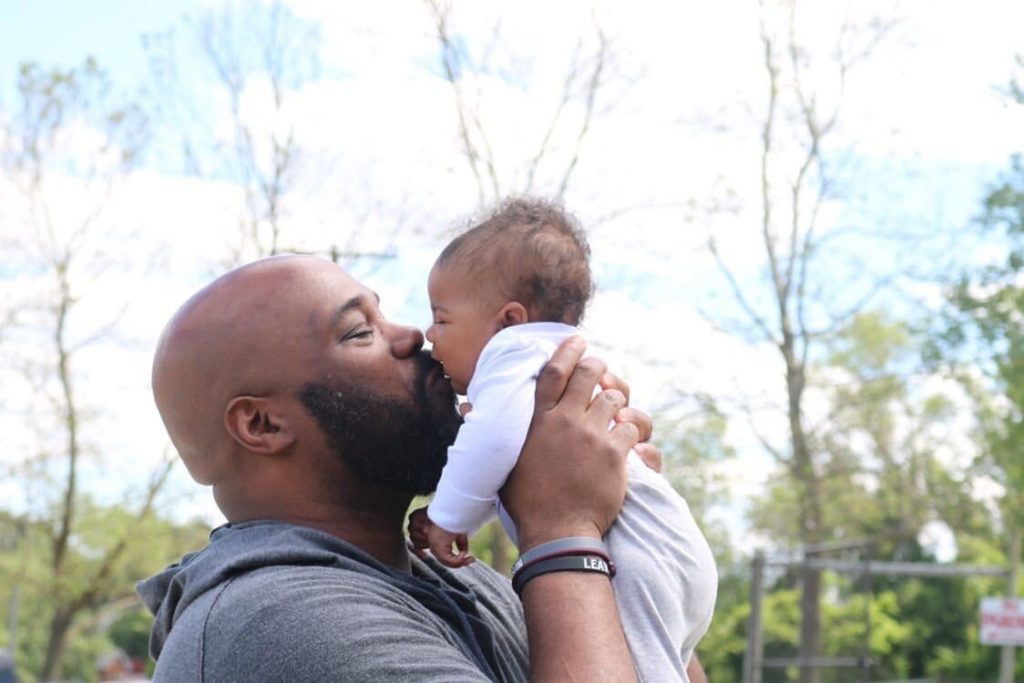Part Two – Why We Need Great Dads… with tips
For most of her childhood, Linda Donaldson said she watched her alcoholic father spend time in and out of jail.
“I don’t know if he ever knew how much his involvement in our life, sober, impacted us,” she said in an article for The National Fatherhood Initiative.
As an adult volunteer teacher at the Utah County Jail, Linda noticed almost all of the men she worked with struggled with the same problem as her father. As a result, she met with 15 men at the jail for two hours a week to teach them different ways to build relationships with their children.
“When I [asked] them ‘What is the number one thing that you want for your child?’ a lot of times, they [said] ‘honesty’ or ‘not to repeat the mistakes they’ve made,’” Linda said.
Linda’s experience is one that is shared by many children growing up in fatherless homes. A study by Allen and Day shows that lack of paternal involvement has also been associated with a higher likelihood of being bullied and experiencing abuse, perceived abandonment, attachment issues, child abuse, childhood obesity, criminal justice involvement, gang involvement, mental health issues, poor school performance, poverty, homelessness; and substance use.”
Having an active father present plays a big role in the healthy development of a child.
Some of the benefits were listed in an article for Child Crisis Arizona:
· Increasing Intellect – Children raised with active dads tend to score higher on verbal and math tests and are less likely to drop out of school or commit juvenile crimes
· Boosting Confidence – By helping kids to understand how much they are valued and loved, children with supportive fathers are more likely to have high self-esteem and are generally happier and more confident.
· Giving them Someone to Look Up To – Children with more involved fathers tend to have fewer behavioral and impulse control problems, longer attention spans and a higher level of sociability. These children also tend to be more compassionate and generous, with an increased awareness of the needs and rights of others.
· Providing a Different Perspective – Active parents with different approaches to parenting can be a great way to expose children to a broad range of thinking and problem-solving.
· Helping them Feel the Love – Having dad as a steady source of love and encouragement helps ensure that children grow up happy and healthy, with high self-esteem.
Studies show that children who grow up without a father are five times more likely to commit suicide, 32 times more likely to run away, 20 times more likely to have a behavioral disorder, 14 times more likely to become sexually aggressive or to commit rape, and 10 times more likely to engage in drug abuse. But that does not mean all children who grow up fatherless are lost.
A July 2020 article for WeHaveKids.com by McKenna Meyers offers hope for those who have already grown through the fatherless experience, when they seek help. “With all his limitations, she can make a conscious choice to not let his absence define her,” Meyers writes. “She can recover from his rejection and lead a self-directed life.” That bit of relationship education can be a life-changer.”
Relationship education always makes a difference, especially when it is a source of prevention. Working to become a better Dad can only be a good thing for both the father and the child.
The National Fatherhood Initiative lists 10 ways to become a better dad.
Each one has a study to back up why it is important. Doing these things will make a difference for life.
· 1. Respect your children’s mother.
· 2. Spend time with your children.
· 3. Listen first, talk second.
· 4. Discipline with love.
· 5. Be a role model.
· 6. Be a teacher.
· 7. Eat together as a family.
· 8. Read to your children.
· 9. Show affection.
· 10. Realize that a father’s job is never done.
Make your children your priority. Spend time with them. Eat dinner together and ask them about their day. Do homework with them, and spend family time together. Even the U.S. Department of Health and Human Services says fathers who are actively involved in their children’s lives contribute to their emotional health, overall wellness, social development and self-respect.
They are not only your children, they are our future. Join MREC in making family a priority, and watch our nation heal.
– Lois Szymanski
If you liked this article, please consider choosing the Marriage and Relationship Education Center as your charity of choice on Smile.Amazon.com, or donate to us HERE. Thank you for your support!





